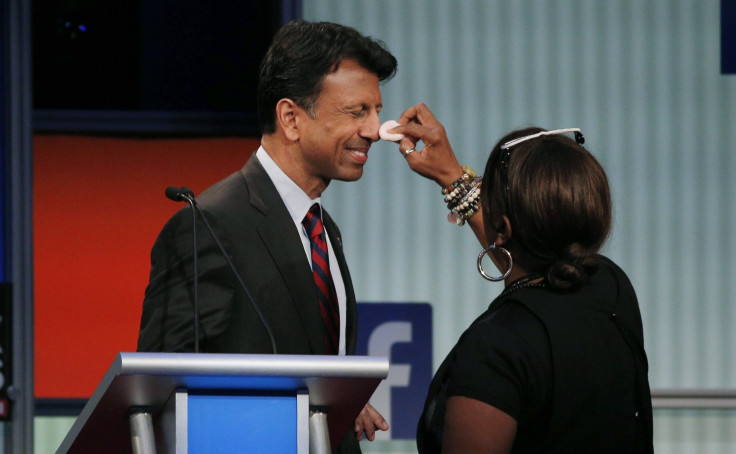Governors In GOP Debate 2016: Amid Bobby Jindal's Poor Polling At Home, Does It Hurt To Be An Executive?

If you're a governor in the United States, conventional political wisdom says that those executive credentials will be a strong asset if you decide you want to run for president. Governors get to point to past accomplishments and own them as their own: Saving a faltering state economy, reforming social rights in their state and rejecting legislation that runs against their party ideals.
For the four sitting governors running for president, however, their executive experience has represented something of a mixed bag ahead of the 2016 White House election. The candidates are polling behind business mogul and reality TV star Donald Trump and can't seem to win over constituents in their home states, let alone across the nation. Their stalled efforts have raised a question that could change future elections: Is America's love affair with governors over?
In the first Republican debate Thursday that included the lowest polling candidates, an early question aimed at Louisiana Gov. Bobby Jindal underscored America's lukewarm relationship with governors this election cycle. The moderator asked: Why, if Hillary Clinton polls better than you in your home state, do you think you can win a presidential election?
"I ran for office to make generational changes in Louisiana," Jindal responded, a line that the (Baton Rouge) Advocate pointed out is a go-to line for the governor when he's asked about his low polling. Making big changes like Jindal's means low polling, according to Jindal.
Jindal has the highest unfavorable rating in his home state (64.7 percent) out of all of the sitting governors in the race, but three others aren't too far behind. In polls conducted this year, Jindal's unfavorable rating is followed by New Jersey Gov. Chris Christie (59 percent), Wisconsin Gov. Scott Walker (58 percent) and Ohio Gov. John Kasich, whose unfavorable number is 29 percent.
Christie's high unfavorablity numbers are a big decline from his former stature. In 2012, Christie's polling shot up after his response to Hurricane Sandy, which devastated New York and New Jersey, was deemed as an example of strong leadership. But these days, Christie is polling in second place in his home state even against a Republican.
Walker's unfavorability is perhaps a bit more understandable. He came into the political spotlight following a high-profile battle over collective bargaining rights in his state that led to a recall election, which he won. His public image is largely built around the idea that he can get things done even with fierce opposition.
Still, the conventional wisdom about governors performing well in presidential contests makes sense given recent history. Four of the last six presidents were all governors at one point in their careers: George W. Bush, Bill Clinton, Ronald Reagan and Jimmy Carter.
And being a governor is still a better résumé builder than being a senator. Before Barack Obama, the last president who was only a senator before becoming president was John F. Kennedy. Every other winner was either a governor or a vice president before taking the Oval Office.
© Copyright IBTimes 2024. All rights reserved.






















